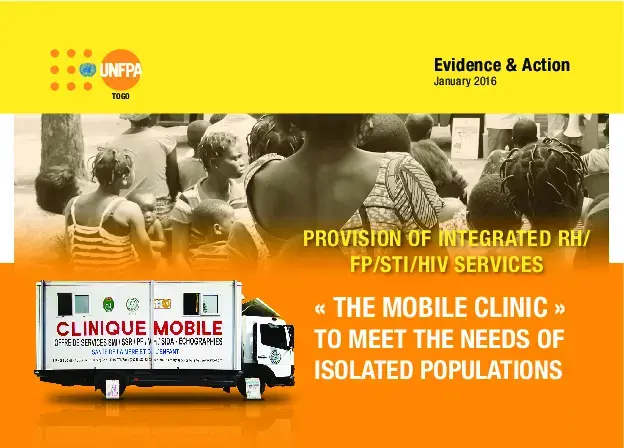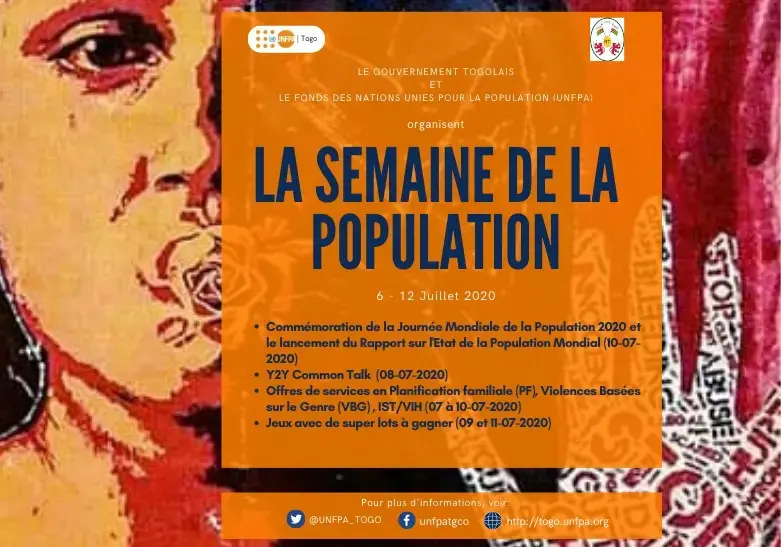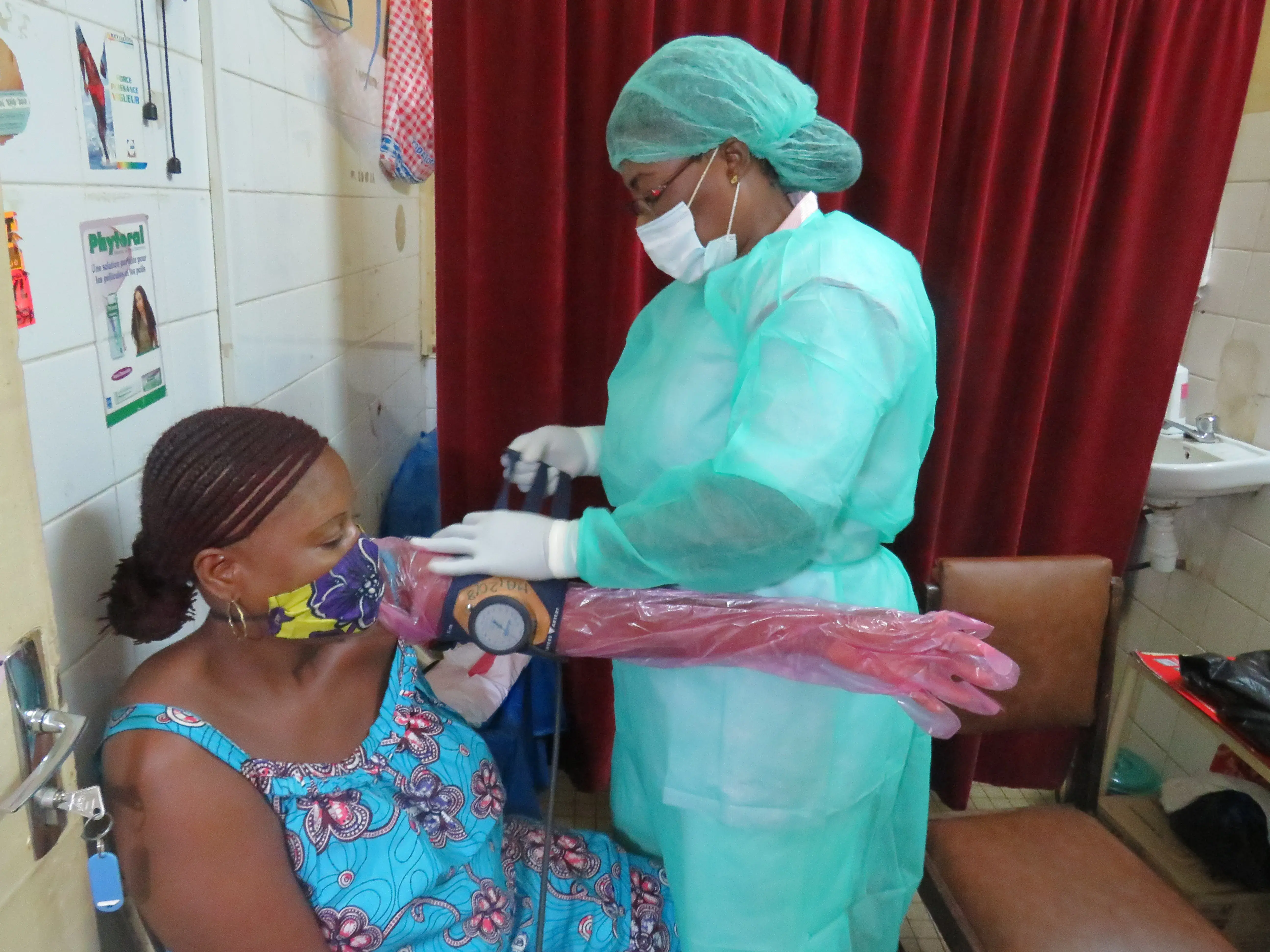In Togo, the limited access of populations, especially women, young
girls and children to Reproductive Health (RH), Family Planning,
treatment of sexually transmissible infections (STI) and struggle
against HIV quality services is responsible for the continuously low
indicators in these areas. To remedy the problem, UNFPA Togo, in
partnership with the Department of Family Health, the Health districts
and the NGOs 3ASC and ATBEF, support the initiative of the Mobile
Clinic to bring RH/FP/STI/HIV quality services closer to the women,
the young girls and children living in rural areas in its intervention
areas, with the aim of reaching MDG 4 and 5.
Despite the efforts made, maternal and child health indicators
remain unsatisfying. The maternal and child mortality rates are
respectively assessed to 401 maternal deaths for 100.000 live
births and 49 deaths for 1000 infants less than one year (EDSTIII). In
2013, less than 3 health units nationwide could provide emergency
obstetrical neonatal care (EONC), the standard being a minimum of
5 for 500.000 inhabitants.
The modern contraceptive prevalence was 17.2% with unsatisfied
needs of 37.2% and a high fecundity rate (4.7%) characterized by
its earliness, especially in rural environments. Globally, the fecundity
rate is assessed to 85‰ between 15-19 years; when one leaves
the urban areas for the rural environment, the teenagers’ fecundity
rate doubles, which shows an earlier fecundity in rural areas than
in urban ones.
Besides, the country undergoes a generalized epidemic of HIV with a
national prevalence of 2.5%. Among youth aged 15-24, only 54.6%
have exact and full knowledge about HIV and 48.8% stated they had
used a condom in their last risky intercourse in 2010.





